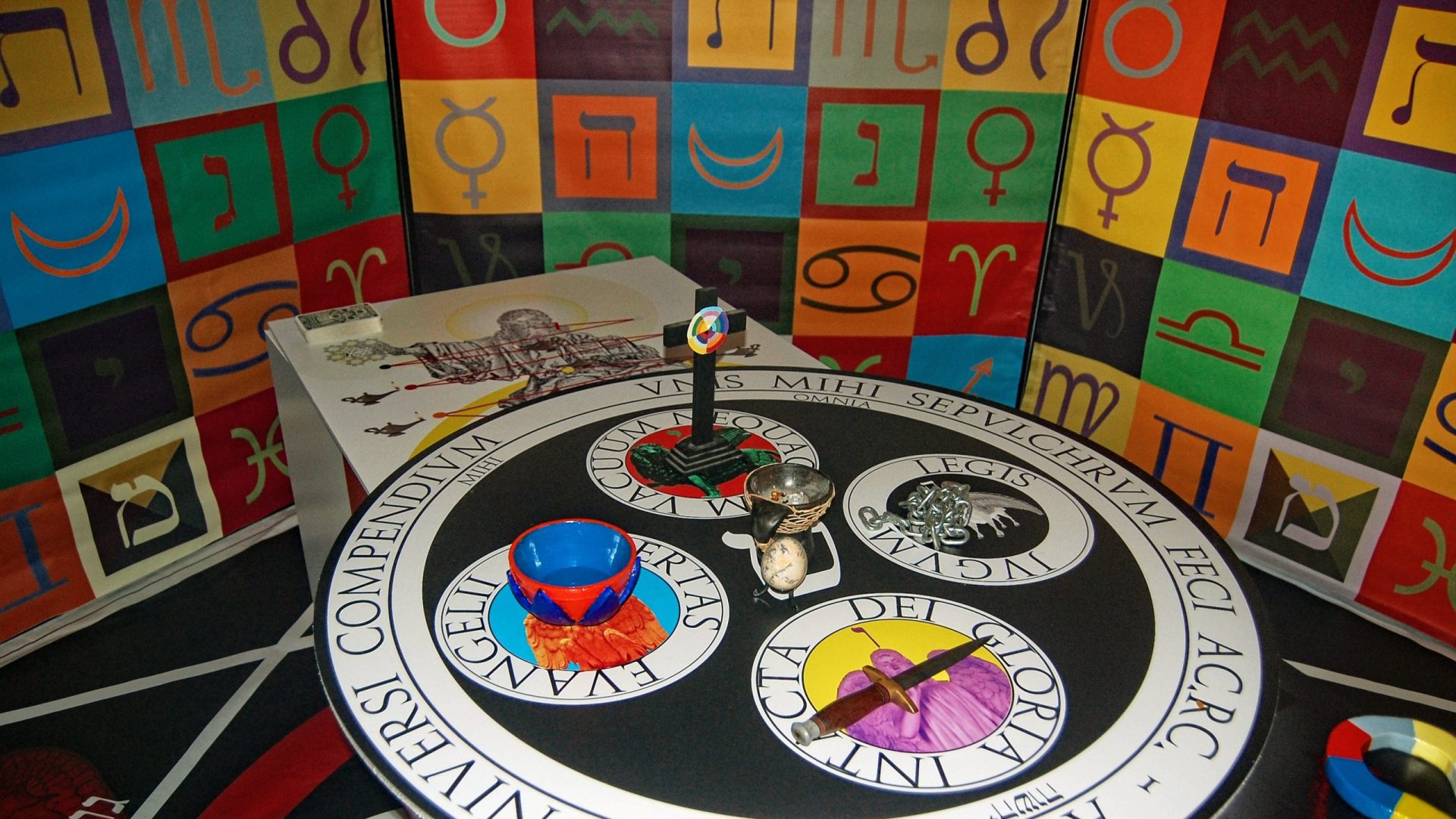 First published as a blog
First published as a blog
December 9, 2005
Corpus Hermetica, which was the bible of Hermetic magicians until the 20th century.
The Corpus was a collection of writings with a Greco-Egyptian Gnostic flavour which was assembled in the second century AD. The actual material which made it up was fairly flexible and may reflect the ideas of different neo-platonic communities. Some of them are magical and others suggest the Gnostic idea of salvation. Some of them have turned up in the dead sea scrolls.
Where they become important to us is that they were translated during that great codification of esoteric knowledge – the European Renaissance. They influenced the great magical thinkers of that period overwhelmingly and this can be seen in the teaching they wrote down.
The Hermetica was a huge influence on alchemy and had a knock on effect on more conventional types of magic that were influenced by this tradition.
So why have we stopped reading the Hermetica? The other day I was in a news group and someone spouted some twaddle about the elements. The idea was that the element of earth was made by mixing the other three elements of air, fire and water. It was twaddle which I had heard before, so it was not the writer’s fault. In fact he quoted the great 20th century magician Franz Bardon as saying it. Whether Bardon said it or not, it was still the sort of twaddle that would not be spouted a hundred years ago when reading the Hermetica was compulsory for all magicians.
“In the deep there was boundless darkness and water and fine intelligent spirit, all things existing by divine power in chaos. Then a holy light was sent forth and the elements solidified out of liquid essence…. All was unlimited and unformed, light elements (fire and air) were set apart to the heights and the heavy (earth and water) were grounded like moist sand, the whole of them delimited by fire and raised aloft, to be carried by spirit. The gods became visable in the shape of the stars and all their constellations and the arrangement of the lighter elements (ie fire and air) corresponded to the gods contained in it? “
How is it possible to understand the magic systems of the ancients unless you have read this fundamental work? Yeah, it is hard going, although a lot easier than the other important work – the Culdean Oracles and is even more contradictory than the Bible. But there are good translations about. ‘Hermetica’ by Brian Copenhaver is one of the best http://www.amazon.com/gp/product/0521425433/103-7028078-0098265?v=glance&n=283155 , although you can find older translations online here http://www.gnosis.org/library/hermet.htm
There is so much here that is yet to be explored by Modern Magicians in a practical way. It also needs to be looked out with modern minds who need to understand what these medieval and ancient magicians really believed they were up to. This is particularly the case in dealing with the ideas of angels, elementals, demons and archons.
This is because modern magic has largely lost its roots.
Historically many only cast their researches to the 19th century and no further. I am prepared to lay money on the fact that only a handful of modern ‘hermetic’ magicians have ever read the Hermetica and percentage who are not sure that it exists. More people will have read Regardie’s Golden Dawn cover to cover than have read the Hermetica. Those who have read it have skimmed through it, and when they could not find any car chases and sex scenes gave up.
The word ‘Hermetic’ appears a lot in the writings of modern ceremonial magicians. In fact over the years it has increasingly been linked with the two things. It has become an identifier – there are wiccans and there hermetics. When you ask what is a hermetic someone will probably rattle off something about it being ceremonial and intellectual rather than emotional and spontaneous magic.


Excellent post.
On the subject of earth being an element made up of the other elements. I suspect that the newsgroup poster or Franz Bardon took this idea from Sefer Yetzirah 3:4:
“Three Mothers AMSh,
in the Universe are air, fire, water,
Heaven was created from fire
Earth was created from water
and air from Breath decides between them”
Rabbi Aryeh Kaplan in his translation and commentary on SY points out that “fire” represents electromagnetic force, “water” represents “stron nuclear” or pionic force, and “air” represents “weak nuclear” force. He goes on to say:
“…the fourth force gravity corresponds to “earth”. Earth, however is not a basic element, but a confluence of the other three**. It is therefore represented by the final Heh in the Tetragrammaton, which is actually a repetition of the first Heh in this name…”
** Pardes Rimonim 9:3
The Corpus Hermeticum should be one of the first things that serious students of magick read on the subject. Especially the Grand Poemander which outlines the ultimate goal of hermetic magick as the congress with the “higher self”. I have had a lot of people tell me that these sorts of books, especially things like the Kabalah Denudata and the Zohar, are difficult to read because of their archaic and obscure language, but, in my opinion, this is merely the first lesson that these books have for those that read them- focus, concentration and comprehension on a deeper level than they commit to most things that they do.
You are right – it is crazy to be in a Hermetic Order like the GD and not read the Corpus Hermeticum. Some of the passages are truly sublime.